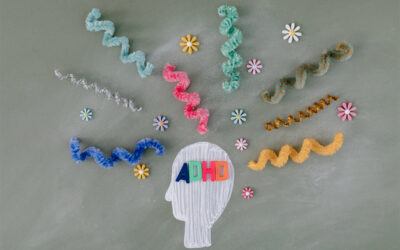Stop Struggling to Find Answers with Expert Psychological Assessments in Nova Scotia
Our expert psychological assessments provide real answers and a clear plan so you can confidently support your child’s growth.

Don’t Wait Anymore—Find the Answers You Need Now
You’ve probably asked yourself:
-
- Is this normal behavior, or should I be concerned?
- Why is my child struggling with reading, focus, or making friends?
- Will a diagnosis actually help my child get the right support?
We understand. Many parents spend months—sometimes years—searching for answers, only to be met with long waitlists and conflicting advice. The longer you wait, the longer your child struggles without the right support.
Expert Testing and Assessment in Nova Scotia
Our licensed psychologists specialize in comprehensive evaluations that identify strengths, challenges, and the best next steps to help your child thrive.
-
- Faster access to expert assessments—no more waiting months for answers
- Reports recognized by schools, therapists, and medical professionals
- Clear, personalized recommendations so you know exactly what to do next
Meet Our Experienced Psychologists
Every child has untapped potential—the key is understanding how they learn, think, and process the world around them. Our assessments provide a full picture of your child’s cognitive, emotional, and behavioral development, helping parents and educators create the best plan for success.
ADHD Evaluations – Get clarity on attention and focus challenges and how to support daily success.
Autism Assessments – Understand your child’s social communication, sensory needs, and behavioral patterns.
Dyscalculia Assessment – Identify difficulties with mathematical reasoning and problem-solving.
Dyslexia Assessment – Understand reading challenges and develop strategies for success.
Dysgraphia Assessment – Gain insight into writing difficulties and improve written communication skills.
Advanced Learner Assessment – Identify strengths and areas for enrichment to support high-achieving children.
A diagnosis doesn’t define a child—it gives them access to the right tools, strategies, and support to live life full.
Read this Guide To Our Autism & Learning Assessments in Nova Scotia

What to Expect: Our Simple, Supportive Process
We make the process straightforward, so you feel informed every step of the way.
Initial Consultation – We discuss your concerns and determine the best assessment for your child.
Evaluation & Testing – Your child completes structured, evidence-based assessments with a psychologist.
Comprehensive Report & Recommendations – You receive a detailed, easy-to-understand breakdown of results.
Guidance for Next Steps – We help you access intervention options, school accommodations, and therapy support.
When you know what’s going on you can take the first step toward helping your child feel confident and capable.
Why Families Trust Us
At North Shore Psychological Services, we’ve seen how life-changing the right diagnosis can be. When a child feels understood and supported, their confidence soars.
Trusted by schools, healthcare professionals, and parents across Nova Scotia
Licensed psychologists with expertise in child & adolescent development
Personalized recommendations—because every child’s needs are different
Compassionate, family-focused care—helping parents and children feel supported
Parents tell us that getting answers was the turning point—finally knowing what their child needs and how to help them succeed was life changing.
Proudly serving families in Stellarton, Truro, and across Nova Scotia.
Frequently Asked Questions
1. How long does a psychological assessment take?
Most assessments require 2-4 sessions, including testing and feedback. You’ll receive a detailed report with results and recommendations.
2. Do I need a referral for an assessment?
No referral is needed. You can contact us directly to schedule an evaluation for your child.
3. Will this help my child qualify for school support?
Yes. Our assessments provide the documentation needed for Individualized Program Plans (IPPs), accommodations, and therapy recommendations.
4. What if I’m unsure which assessment my child needs?
We can help. Book a consultation, and we’ll guide you to the right evaluation based on your concerns and your child’s challenges.
Don’t Wait Any Longer—Give Your Child the Support They Deserve
Every day without answers is a missed opportunity for growth. The right assessment can provide clarity, validation, and the tools your child needs to succeed. Let’s take that first step together.
Articles Related to Dysgraphia and Learning Disorders
Learn more about dysgraphia and learning disorders with resources on our blog.
What are the benefits of a learning, ADHD, or behaviour evaluation for my child?
As a parent, you do everything you can to support your child, including their learning. Yet, when a teacher or the school suggests your child get “evaluated,” it can lead to uncertainties and questions. Many parents are left wondering: How will this really help? Will...
Psychological, ADHD, and Learning Assessments: What happens after your child’s testing?
Psychoeducational evaluations help you, your child, and the school better understand their learning style, emotional needs, and behavioural functioning — so they can get the right support to thrive. There are many benefits of an evaluation for a child or teen. But how...
ADHD Assessment vs Screening Tools: What Your Child Needs
When there’s a problem, it’s natural to want to solve it as quickly as possible. So if your child’s school suggests a screen for attention deficit hyperactivity disorder (ADHD), you may first seek help from your child’s pediatrician or family doctor. An ADHD screening...
Frequently Asked Questions
Do I need a professional referral for dysgraphia testing?
Your child or teen’s pediatrician, school, or mental health provider may refer your child. However, a professional referral isn’t necessary unless required by your insurance provider.
How much does a dysgraphia evaluation cost?
Dysgraphia assessments vary by purpose and service providers. However, typically, a dysgraphia evaluation for a school-aged child is between $3150- $3,375.
Each evaluation typically involves 4 to 6 hours of direct assessment time with the client and then additional time for scoring, interpretation, and report writing by the psychologist. The whole process takes approximately 15 hours. Please call for more information about fees for various assessment services.
How do I explain the dysgraphia assessment to my child?
Many children and teens find the process interesting. That said, we want your child to be motivated and relaxed on the assessment day. To help prepare your child, you can:
- Listen to their concerns
- Avoid using the word “test,” instead consider using “activities”
- Let them know that the purpose is to help them better understand themselves or what they’re experiencing
- Normalize the experience by reassuring them that other children participate in evaluations, too
The psychologist will also explain the assessment, including addressing any concerns.



